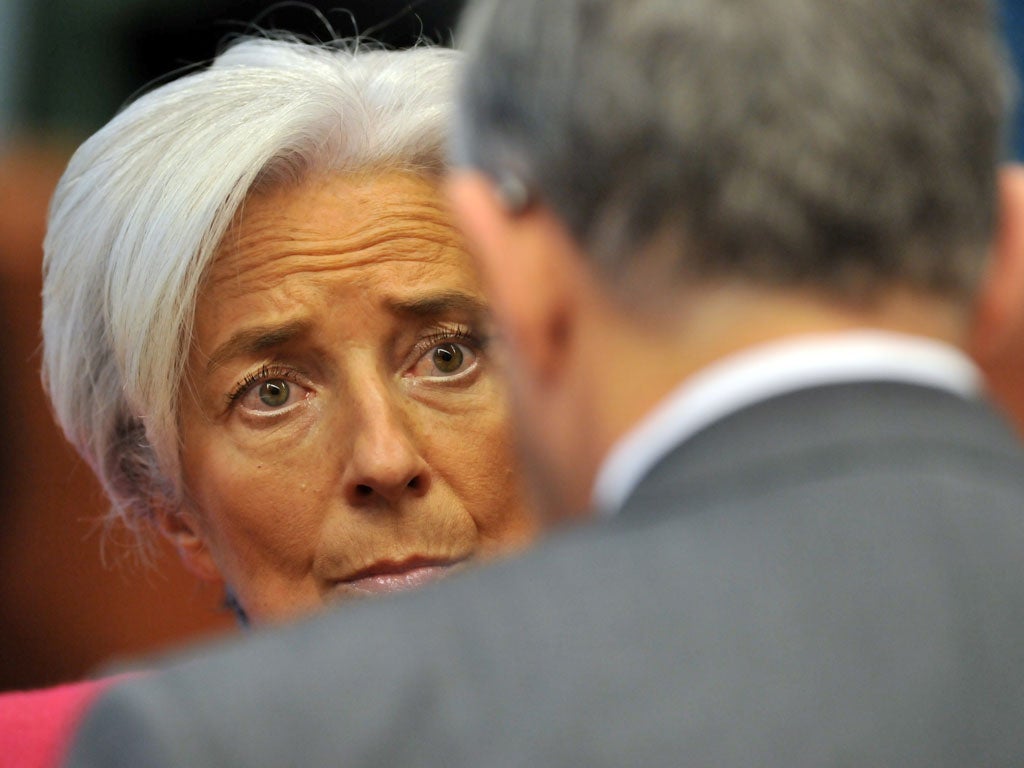Ministers set to approve new €130bn Greek bailout after Athens agrees to deeper cuts

European finance ministers appeared last night to be on the brink of a deal to grant Greece another multibillion-euro bailout and stave off the threat of a potentially disastrous default next month.
Evangelos Venizelos, the Greek Finance Minister, said he expected the meeting in Brussels to bring his country's "long period of uncertainty" to an end, while his French counterpart, François Baroin, said all the elements for the agreement were in place. The German Finance Minister, Wolfgang Schäuble, said he was "confident" that the summit would produce a positive outcome.
That upbeat message was echoed by Christine Lagarde, managing director of the International Monetary Fund, who praised Greece's recent "significant efforts" to get its public finances into shape. European stock markets climbed on the expectations of a deal, with shares in some large French and German banks rising.
After protracted talks this month, the coalition government in Athens agreed to impose €3.3 billion (£2.75bn) of extra spending cuts and tax increases this year – a commitment demanded by its European government creditors as a condition for the release of €130bn in new bailout money.
Greece is entering its fifth year of recession after its economy contracted by 6 per cent in 2011. It has imposed spending and tax cuts equal to 8 per cent of its GDP over the past two years.
Protests against these austerity policies have boiled over in the past week. About 3,000 demonstrators gathered at Syntagma Square, Athens, yesterday and there were fresh confrontations with riot police.
There were signs that the extra bailout funds would be paid into a special account controlled by Greece's European partners, from which creditors will be paid directly. This is to ensure European governments can withhold money from Athens if it does not deliver on its reform commitments, without running the risk of default.
The Dutch Finance Minister, Jan Kees De Jager, was also pushing for the European Commission, the European Central Bank and the IMF to establish a permanent presence in Athens to oversee Greek budget decisions. Finance ministers were also expected to give their approval to a bond-swap deal with Greece's private-sector creditors, which would see Greek bondholders take an effective 70 per cent writedown.
Join our commenting forum
Join thought-provoking conversations, follow other Independent readers and see their replies
Comments
Bookmark popover
Removed from bookmarks